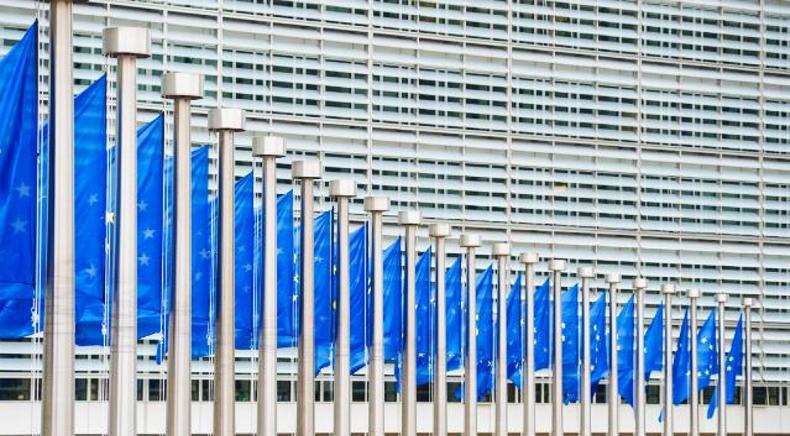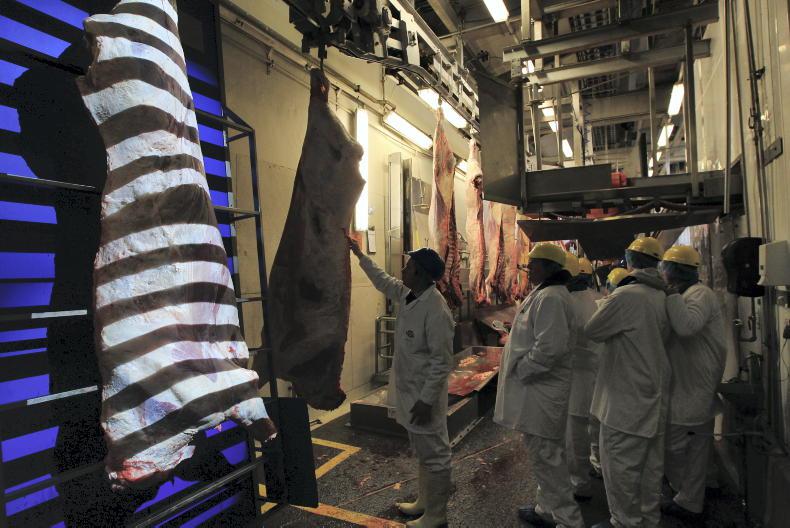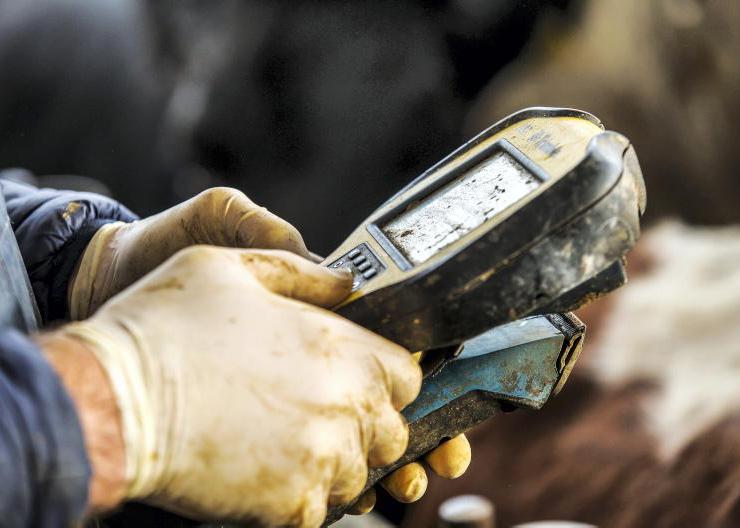Irish farmers took to the streets of Dublin this week, with Mercosur the original motivator.
However, continued price falls meant that the wider frustrations of farmers were aired, but, unfortunately, there does not appear to be any respite in the immediate future and concern is growing about how this will impact on the weanling sales due to start in a few weeks.
Current trade problem
What is particularly worrying is that beef sales are so slow this year to date, with big stock overhangs, especially of manufacturing-type beef that is occupying a lot of cold store space.
It appears the market is caught between a reduction in consumer confidence in the UK, supermarkets keeping margin with continued high retail prices and limited use of promotion.
No doubt, the persistent anti-meat campaigns are having some effect on consumer behaviour as well and all of this combines to make the present beef market particularly depressing for farmers.
Unfortunately, unlike the supermarkets, farmers don’t have the option of holding their price at a level; when cattle are ready to sell they have to go irrespective of what the market is.
Reports on Brexit
This week also brought further Brexit reports from both the Irish Government and the department for the economy in the north in the absence of a government in Stormont.
In the case of the Irish Government, the hit to the Irish economy is projected at €6.5bn, with agriculture being particularly hard hit.
Also, it is the most explicit acknowledgement yet that the Irish Government would have to protect the single market of the EU27, which would mean checks on produce coming south.
This has been obvious, but is something the Government has been reluctant to say explicitly until now.
For farmers in the North, sending lambs and milk south, it is again explicit these would have to come in through import channels and wouldn’t be the seamless business that we have at present.
Agriculture loses in both reports
The report by the department of the economy in Northern Ireland presented a similar negative picture, with an overall hit of 9.1% on the gross value added (GVA) of the NI economy and a potential loss of 40,000 jobs.
The issue of tariffs and veterinary health certification are also addressed and serve to emphasise the extent of the problems a no-deal Brexit will present NI agriculture with no solutions.
Looking at the problem from either side of the border, it is clear that a no-deal Brexit will severely damage agriculture.
Yet, as the Conservative party leadership campaign enters the final phase, both candidates are quite relaxed about facing a no-deal Brexit.
Farmers on the island of Ireland will be hoping that they have one message for the campaign but a more pragmatic approach when they get into government.
Read more
Mercosur: hypocrisy of Government must be challenged – IGGG
‘Opposition to Mercosur deal growing across Europe’ - IFA
NI milk could collapse in hard Brexit
Irish farmers took to the streets of Dublin this week, with Mercosur the original motivator.
However, continued price falls meant that the wider frustrations of farmers were aired, but, unfortunately, there does not appear to be any respite in the immediate future and concern is growing about how this will impact on the weanling sales due to start in a few weeks.
Current trade problem
What is particularly worrying is that beef sales are so slow this year to date, with big stock overhangs, especially of manufacturing-type beef that is occupying a lot of cold store space.
It appears the market is caught between a reduction in consumer confidence in the UK, supermarkets keeping margin with continued high retail prices and limited use of promotion.
No doubt, the persistent anti-meat campaigns are having some effect on consumer behaviour as well and all of this combines to make the present beef market particularly depressing for farmers.
Unfortunately, unlike the supermarkets, farmers don’t have the option of holding their price at a level; when cattle are ready to sell they have to go irrespective of what the market is.
Reports on Brexit
This week also brought further Brexit reports from both the Irish Government and the department for the economy in the north in the absence of a government in Stormont.
In the case of the Irish Government, the hit to the Irish economy is projected at €6.5bn, with agriculture being particularly hard hit.
Also, it is the most explicit acknowledgement yet that the Irish Government would have to protect the single market of the EU27, which would mean checks on produce coming south.
This has been obvious, but is something the Government has been reluctant to say explicitly until now.
For farmers in the North, sending lambs and milk south, it is again explicit these would have to come in through import channels and wouldn’t be the seamless business that we have at present.
Agriculture loses in both reports
The report by the department of the economy in Northern Ireland presented a similar negative picture, with an overall hit of 9.1% on the gross value added (GVA) of the NI economy and a potential loss of 40,000 jobs.
The issue of tariffs and veterinary health certification are also addressed and serve to emphasise the extent of the problems a no-deal Brexit will present NI agriculture with no solutions.
Looking at the problem from either side of the border, it is clear that a no-deal Brexit will severely damage agriculture.
Yet, as the Conservative party leadership campaign enters the final phase, both candidates are quite relaxed about facing a no-deal Brexit.
Farmers on the island of Ireland will be hoping that they have one message for the campaign but a more pragmatic approach when they get into government.
Read more
Mercosur: hypocrisy of Government must be challenged – IGGG
‘Opposition to Mercosur deal growing across Europe’ - IFA
NI milk could collapse in hard Brexit









SHARING OPTIONS